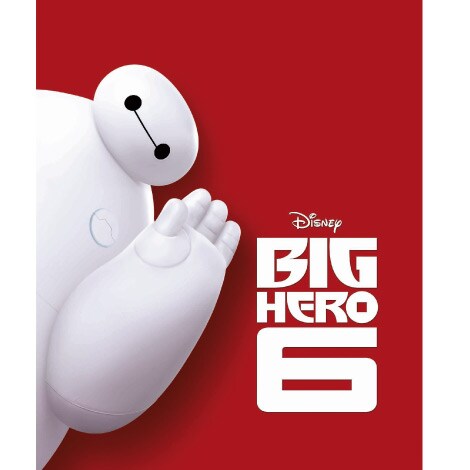It’s like this: if the world has a food shortage, you eliminate hunger by leaving the planet, taking all your animals and plants in your genetic ark, and finding a new planet on which to grow and flourish.
It’s also like this: if the world has a distribution of wealth crisis, you eliminate poverty by never having elites in your new society. At least for a little while. At least, that was the plan.
And if the world has a gender crisis, an inability for equality, you eliminate gender.
You eliminate sex. The need for physical reproduction. Genetic disease. Gender politics.
You eliminate.
And then maybe you’d live in Arioth, city under the vast hanging visage of a ringed gas giant, black towers that reach for the stars, portal tubes flicking citizens from building top to street corner to corner office.
*
I’m not one of the elites. They lounge in their penthouses, looking down at their domains, moving the tides of originality. They own the artisans, the writers, the thinkers, the scientists—the hearts, the minds, the souls—all valuable trade commodities. Original thoughts, a groundbreaking currency. The first time you have an original thought, you’re a slave of the elites for life.
I decided long ago to never have an original thought. Which is why I became a tracer, hunting the original thinkers who have the very unoriginal idea of running away from their fates.
On a dingy street corner smelling of rotten garbage, where red marks mottled the concrete from the last clearing of a shack village, I pulled my phone out of my pocket, flipping up the eight-centimeter cylinder to activate the holographic display. It unfolded with a cheery chime and showed me a map of the city district in blue lines to the edge of the biodome, which was about a half kilometer from where I was standing.
It also showed me the path my target had taken, a haphazard red weave through streets and alleyways. Did they think they could lose me? Everyone in Arioth was genetically tagged since before emergence. Every child, traceable in every way since the time cells hit cells and became more cells, replicating in the gestation pods. You couldn’t run, not as a toddler, not as an adult. Tracers didn’t have to have original thoughts, because the most strenuous part about being a tracer was the violence, not the tracing itself.
Except.
I scrolled the holo to follow my target’s trail, but it went to a street corner in a particularly seedy district and stopped. I stared at the red dot on my display. It wasn’t blinking as it should have been. And it wasn’t white like it would have been if they’d died. Just solid red staring back at me, like they’d stopped themself somewhere between life and death. That little dot with the name “Emin 4892” beside it.
I’d been a tracer for six years, and I’d never seen a dot do that.
I slapped my phone against my neatly pressed jeans, hoping to jolt out any malfunction. The tracer department was not a department that had a lot of originality, and therefore not a lot of chance for technical upgrades. This phone was at least ten years old and buggy as hell.
The red dot remained, though.
I sighed, shoving down my growing unease. I’d have to investigate—following procedures, of course. Not with anything like original thought.
*
I had my personal numbers and stats in my vision at all times, eyes opened or closed. Everyone did. We saw our names—mine was “Gin 8381.” We saw our physical attributes—cropped brown hair, mid-brown skin, green eyes. Average height, below average weight. We saw our vitals—fit and healthy. We saw, when we were adults, when it was time to visit a clinic and let them harvest cells for the production of the next generation of creche children. We saw alerts from the elites. We saw traffic routing, job assignments based on genetics and aptitudes, and alerts on where to take our daily meals. Everything pertaining to personal, daily life.
And on the left side of my vision, always in movement, was the red to green bar of original thought.
The theory was that if you had an original thought, you would be elevated. You would have a chance, if the thought was original enough, and if you had enough of them, to become an elite. Or at least work under the elites, a few steps higher than you had been.
Some people strove for original thoughts. Their slavery was swift and usually unknowing. They’d lose themselves into their dream worlds and never know how many trade empires depended on their originality.
Some tried hard not to have original thoughts but had them accidentally. Those slaves went fighting and screaming into their elevated exiles.
But most people, from an early age, learned to manage the level of their originality bars. Keep it above red—where you’d be kicked to the streets as genetic chaff—but below yellow-green. If you could hold a steady yellow-orange, you’d have a nice, ordinary, productive life. No great upheavals. No great risks, no great rewards.
*
My originality bar was steady in its usual yellow-orange as I trekked through the litter-strewn streets. A rain had been scheduled for earlier that day, and my boots made soft splashes in black puddles. I’d known the rain was over when I’d come out, but I’d worn my brown duster with its weather-proof coating anyway, because I liked it.
There were no portal tubes in this district, and auto cabs wouldn’t come here, so I had to walk. People would strip both portals and cabs for the metals and resell the parts. That thought was hardly original.
I went through memorized procedures over and over in my mind, a numb and soothing counterpoint to a rising anxiety. My left hand played with the cool metal of my phone in my pocket, a nervous habit I’d never tried to break. I had a sour feeling in my stomach, something that rarely happened on a trace. Tracing was usually as simple as finding the target and bringing them in. Give or take a few bruises or tase gun singes.
But as I neared the place where my target had stopped and saw the sign above the grimy storefront glass, my unease grew.
It was a cuddle shop. There were hundreds of them around the city. If you didn’t have a domestic partner or two, or if you were desperate enough for human contact, you could find it here.
I’d been to some of the middle-class facilities—called Human Contact Therapy there—I wasn’t a recluse. But everyone who was sane stayed away from shops in districts like this. Places like this, people found ways to piece together originality without ever having a full original idea on their own. How to build illicit tech to simulate nerves and responses that were no longer in the human genetic code. Because humans had apparently not out-evolved the need for sex, despite the lack of equipment for it or the stability of a truly sexless society. Which was ridiculous. Genetics were more stable without the haphazard nature of biological reproduction. People didn’t go into hormonal rages like we learned about in ancient history. And there was far, far less abuse. Who could imagine a society so divided that one half subjugated the other purely based on genetics?
I pushed through the creaking door into the shop and had the thought I sometimes had, that maybe our society wasn’t so different from the old horrors in the history texts. That eliminating biological sex and gender had only transferred the problem to a different arena. Humans would always find a way to dominate others, and maybe that domination was still genetic. The bred thinkers vs. the bred non-thinkers. The elites vs. those in shacks on the streets. All watched, all pre-disposed to their lives, and if someone broke their prescribed mold, it was because they were supposed to. Genetic destiny, because the geneticists did not make mistakes. Everyone in their place.
The originality bar on the side of my vision hardly twitched. This thought I was having was not an original thought. Not for me, not for the millions of people monitored by the system.
“Can I help you?” A squat, older person with wild gray hair came toward me in the shop’s humid, off-white lobby.
I grimaced at the tang of sweat in the air. But I pulled out my phone, flipped open the holo, and showed a picture of my target. “I’m looking for this person. Have you seen them?”
“Oh,” the squat person said. “Oh, yeah. Yeah, they’re here.”
I tilted my head. “Still here? Still alive?” I flicked my phone’s holo back to the map. The red dot was solid, and close.
The person fidgeted, a sort of nervous dance. I focused on them, my tracer’s license giving me the ability to see their vitals, their originality bar. All were dangerously high. In a city that tried its best not to do anything out of the ordinary, fear was an original thought.
“Come with me,” the squat person—Dev 1126, the registered owner of this property—said, and led me into the back.
I passed steamy, translucent cubicles. I did not think about what was happening inside them, my lips tightening against the perversity. Human touch was fine. Benign affection was fine. More than that was dangerous.
The owner led me past all the cubicles to a room in the back, a room that had a sterile edge about it, with medical objects and tech on steel counters and an unoccupied medical table in the center.
“I don’t do anything here,” Dev 1126 said. “I just own the building.”
A standard excuse for one part of an original idea. Someone would own the place. Another would facilitate the tech parts, and a few more daring idiots would brush against fate by having just enough of an idea to spread it around. To build whatever they were building.
The room was empty. I checked my map again, and the red dot was centered just beyond this room. I reached into my right coat pocket for my tase gun.
“Hey,” the owner said, putting their hands up. “Hey, I didn’t do anything. Your target’s in there. Back through there.” They nodded at a back door.
Everything about this felt like a trap.
Fortunately, there were procedures for traps.
I shouted, “Emin 4892, come out peacefully, or I will use excessive force!”
I wasn’t expecting my target to come out so easily, and fully expected to have to turn my tase gun’s settings to demolition, but the door cracked, and a slim hand poked out and waved.
“I’m coming out,” a high-pitched voice said. Abnormally high. High with fear?
My brows knit and I hesitated, my aim wavering. Did I have the right person? There was something…off…about that voice. My originality bar jerked precariously upward, and I set my thoughts into reviewing the case file again. The voice did partially match the voiceprint on genetic file for Emin 4892. Thirty-three years of age. Food tester for a gourmet food chain. Nice job, don’t know why they left it. Don’t know why they wanted to have an original thought, if they wanted to at all.
The whole person came out through the doorway. Below average height and weight, bowl-cut black hair. They both were and were not my target. Cosmetic surgery had been involved, certainly. But had it healed this quickly? I’d only got the alert on my target that morning.
Emin 4892 wore a loose, surgical-type green gown and crossed their arms under…anatomy that should not be there.
We all knew what we came from. We all knew the barbaric forms our ancestors had been forced to live in for thousands of years before they were evolutionarily liberated. We knew the carnal drives that society insisted we were no longer slaves to but places like this insisted still lingered in our minds, like an itch that was never quite scratched.
I had never seen an actual throwback, a female, before. For a fleeting, dangerous moment, I wondered if I would feel something more than I should, if my thoughts would turn too original, but they didn’t. I guess I’d never had that itch.
But Emin 4892 apparently had.
They read my judgment, my horror, and their black eyes turned cold. They held their arms tighter around themself.
“That’s right, look at me,” they said. “This is who I am. You can’t take it from me.”
Emin 4892 and the people of this shop must have found a way to perform surgery—no, some kind of genetic splicing or modification—without scars and with rapid healing factor. That in itself was massive originality and an incredibly valuable commodity.
I stared at Emin 4892, and I couldn’t see their vitals. Their red locator dot still shone on my phone, but it hadn’t moved from the back room. Whatever had been done to them had been done there, and that’s where the dot had stopped. Where “they” had stopped and become “her.”
It was physiological, wasn’t it? Not just a cosmetic change. This person was actually female.
I tightened my grip on my tase gun. “Yes, I can take it away. Emin 4892, congratulations. You have had a highly original thought. You will be taken to originality processing where you will be given new accommodations to match your risen status.”
Emin 4892 flipped me the finger. But she didn’t try to bolt. She wasn’t going to run, was she?
“I’m original,” she said, voice tight and smug. “I’m original. I’m an artist, and this is my art.” She waved down at her body. “I decided to make a study of ancient human anatomy. That is an acceptable branch of study. I made an original breakthrough in the field of this art. Look at me—a living sculpture. You can’t destroy that, or return me to how I was. Destruction of originality is a capital crime, isn’t it?”
My thoughts jittered, following her logic. I tried to keep my thoughts in line, but my originality bar rose dangerously into yellow-green. My heart rate intensified.
“Yes, destruction of originality is a crime,” I gasped. I closed my eyes, still watching my originality bar, and ran backward through my most-used procedural manual.
My thoughts began to flow again. To slow. The originality bar went back to yellow-orange.
I exhaled and opened my eyes. I’d take my target in. They were not my problem—they were for someone much more original than I to deal with. It didn’t matter that my target had a point to make, or a sculpture to display, or whatever perversity they thought they were getting away with. It would all smooth out in the end. And it was not my problem.
Emin 4892 sensed their victory, whatever victory they thought they’d gained, and held out their arms. I slapped cuffs on their wrists and shuffled my target out of the shop. I flagged the shop for immediate lockdown and further investigation. It would be shut down, the valuable tech confiscated and taken to be studied by more original scientists. Those who’d built the tech would be traced and taken in, too. You couldn’t escape the fate of original thoughts.
Society would continue in its stability.
Or would it? I darted a glance at Emin 4892. Were they—I couldn’t use “she” without my originality bar climbing, and maybe it wasn’t even “she,” did I even have a right to determine that?—as deranged as our society dictated? Did they just want attention and infamy or did they seriously think that going back to humanity’s original evolutionary forms was a good thing? And if Emin 4892 had caused this much stir already, how could so much originality, so much chaos in concepts like gender or sex, possibly be good?
Emin 4892 walked beside me with a confidence, a carriage in their step I’d only seen in elites. And their eyes flashed with something beyond the defiance, their mouth tight with intense determination. This meant something to them. Something more than status, maybe even more than a statement.
My originality bar started to climb again, and I shunted my thoughts back to procedures, looking away.
Emin 4892 grinned. A sour, knowing grin.
And I hated myself for feeling the contempt in that grin and knowing that I maybe deserved it. That maybe we all did.
That was also not an original thought.
I escorted my willing target down the city blocks to the nearest portal tube, doing my best not to think of societies and change.
© 2019 by Novae Caelum
Author’s Note: Being queer and non-binary, one of the things I think about a lot is what a future society might look like where gender and sexuality aren’t an issue, and everyone freely expresses who they are. Usually, that feels like a big, happy world (or worlds!) to me, and I truly hope for that future. But this story was born out of what if that idea went horribly wrong and the concepts of gender and sexuality weren’t normalized but banned—what would that society look like? Turns out, pretty dark.
 Novae Caelum is an author, illustrator, and designer with a love of spaceships and a tendency to quote Monty Python. Stars short fiction has appeared in Intergalactic Medicine Show, Escape Pod, Clockwork Phoenix 5, and Lambda Award winning Transcendent 2: The Year’s Best Transgender Speculative Fiction. Most days you can find star with digital pen in hand, crafting imaginary worlds. Or writing alien poetry. Or typing furiously away at stars serial genderfluid romance novels, with which star hopes to take over the world. At least, that’s the plan. You can find star online at novaecaelum.com.
Novae Caelum is an author, illustrator, and designer with a love of spaceships and a tendency to quote Monty Python. Stars short fiction has appeared in Intergalactic Medicine Show, Escape Pod, Clockwork Phoenix 5, and Lambda Award winning Transcendent 2: The Year’s Best Transgender Speculative Fiction. Most days you can find star with digital pen in hand, crafting imaginary worlds. Or writing alien poetry. Or typing furiously away at stars serial genderfluid romance novels, with which star hopes to take over the world. At least, that’s the plan. You can find star online at novaecaelum.com.
If you enjoyed the story you might also want to visit our Support Page, or read the other story offerings.



 Big Hero 6 is an animated action comedy science fiction movie released by Walt Disney Animation Studios in 2014, which is loosely based on the Marvel superhero team of the same name.
Big Hero 6 is an animated action comedy science fiction movie released by Walt Disney Animation Studios in 2014, which is loosely based on the Marvel superhero team of the same name.




